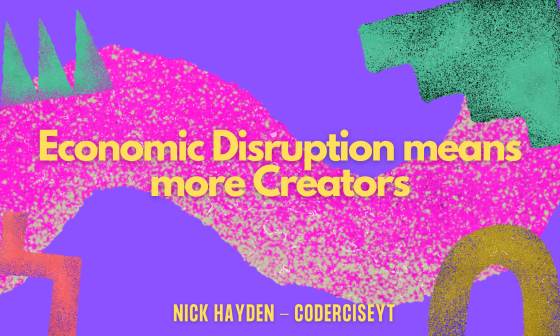In jiu jitsu there’s a training method called positional sparring, sometimes called specific training. These two names refer to a training format where two people will start in a set position with defined parameters on where they start and when they stop. The power of this training is that it gives you repeated practice for something you’re trying to learn that focuses specifically on that technique, this is very different to open sparring where you may only find yourself in a position you’re trying to learn once or twice in a round.
A funny feature of specific training is that a meta game develops where people will do objectively bad techniques just for the purpose of winning the round. These people have developed the meta game to a point where they can win with unorthodox or in some cases outright wrong techniques because they have figured out the game being played and how to win within that ruleset when your opponent cannot use their full array of techniques.
We can apply these same principles to the workplace where we need to figure out how to win throughout a project or negotiation. When you can work out what the other person’s win condition is then you can work towards your own win condition by incentivising their behaviour in a way that moves your own goals forward. This isn’t to say your workplace needs to be combative, sometimes you have the same win condition as other people whether it’s a client, colleague or manager. If you find yourself somewhere you are constantly in a win/lose situation then it’s best to start looking for new work.
In terms of practical examples, this is often called “doing your job” since you have aligned your win condition with your managers win condition.
An example I have recently seen where someone has not played the right game is at a company where a group of senior managers are wanting to outsource some software development projects instead of growing the internal team. The reasons for outsourcing at this particular company are: removing responsibility from internal teams, perceived improved reliability and perceived improved quality of work. We can already see from these points what matters to the group of senior managers. They want things done to a high quality, reliable services and, someone external to guarantee that it works.
A leader of the internal development team has begun proposing technical solutions to the perceived issues however this is playing the wrong game because the management group is not interested in technical solutions, they are interested in keeping customers happy so when solutions are proposed they must cover the customer aspect much more than any technical solutions and by continuing to focus on tech the internal team begins to slip and lose ground to the outsourcing company who is playing the right game and focusing on the customer component.
Setting the rules of a game when you’re in more senior positions is just as important as learning to play games on your way up. Much has been written about metrics becoming worthless once they are published since people will do anything to make the numbers work for them.
It’s important to recognise the mini games you create and behaviour that is rewarded from your decisions as a leader. One of the funniest examples I can think of recently where rules have created a “bad” result is a competitive, submission only/no time limit jiu jitsu match at the Who’s Next finale between Izaak Michell and Kyle Chambers. The match could only be won by submission, there were no points or alternative path to victory. Sounds exciting and like a great way to find a winner, right? Well, what ended up happening was a 131-minute match where Mitchell attacked the entire time but was unable to submit Chambers since Chambers was playing within the rules, not opening himself up to attacks but also constantly losing the positional battle. Under any other ruleset Izaak would have won handily by points and, Kyle would have been motivated to attack by a shorter time period or points being racked up against him. The rules of the game were set in a way that could be gamed by the players regardless of the result being worse for spectators and Flograppling.
So, what does all this mean when it comes to your own training, growth and work? The first thing we can take away from a developing metagame is that you can restrict yourself to only use certain skills or positions to develop a skill further. This might mean that you are only starting in bottom half-guard and once you sweep you reset the position, for programming it could be that you only read/write to the database once. Putting these restrictions in place means that you have to be creative with your solution and are forced to play from a “bad” position.
The other side of the coin is when you’re setting the boundaries for others to play within. What can you put in place to encourage a certain behaviour in your team if you want a specific outcome or behaviour? People may discover how to meet the win condition without performing what you wanted them to. You might end up with more cobras than you need.
You might be reading this article and thinking I’m the worst, most Machiavellian person but I don’t think that’s true. The core points of this article are that when you work with others they have their own goals and incentives. If your goal is to get a promotion or sell your product then it’s critical you figure out what your boss/customer has for their own goals, you know this from every sales training ever. When we accept that a person’s incentives might not be aligned with the “right” answer we can find a way to create win-win situations for everyone instead of causing trouble for our own initiatives.
Lastly, I would encourage you to think about the games you’re playing in life and whether you actually want to win. You may be in a fierce battle with a colleague for a promotion that only one of you can get and in the modern world we are encouraged to strive for promotions, pay increases, more power and more influence – do any of these things matter? Perhaps not, but it’s hard to realise that when you’re in the situation. I cannot tell you if you’re fighting for the right thing and aligned to games you’ll be happy to win but I can encourage you to think about it and pick your battles to have a better, more enjoyable life.
In life there are many different games to play and, as with the other examples, there’s no right way to play them. The important thing to remember is that you need to be playing the game that’s best for you and for your team. There is no shame in being bad at games, there is no shame in acknowledging it and no shame in moving on to the next game. It’s important to remember that success isn’t the only thing that matters – there are plenty of other things to do in life that are just as important.






